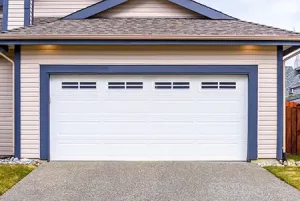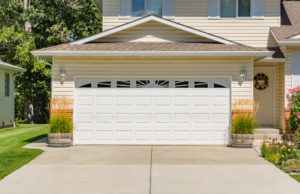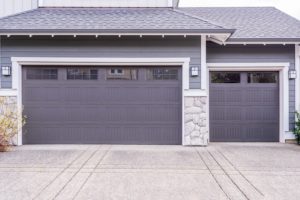Garage Door Safety Sensors – Why You Need Them!
Garage door systems are made up of a number of components. As a homeowner, you are probably unaware of the other lesser-known parts, such as the sensors. Sensors may look like tiny and insignificant devices, but they play a vital part in the safety of garage doors. Learning a few things about them will help you keep your sensors in good working condition and avoid any potential problems along the way.
Types of sensors used on garage doors
Garage door sensors are divided into four categories. Each has its own intended purpose, but they are all designed and constructed for utmost performance and unparalleled safety. Here is a closer look at each sensor type:
Safety sensors
Garage door safety sensors are installed to prevent the garage door from shutting on cars, pets, objects, or people. These are usually fixed 6 inches off the floor on the tracks on either side of the garage door. The sensors communicate with one another via infrared beams, and if the beams are interrupted, the door will stop and reverse direction. These sensors work by detecting objects that are stationary or anything that unexpectedly enters the path of the beams.
Pressure sensors
When a garage door comes into contact with an object that is not the floor, the pressure sensors installed along the bottom edge of the door will tell the opener to stop and reverse the door’s downward closing motion. These sensors are meant to detect even little levels of pressure, preventing the door from shutting on someone or something.
Monitoring sensors
Monitoring sensors are designed for homes with multiple garage doors and inform owners when one of them is open. They connect with receivers installed on a home system or via a smartphone app. In many cases, these sensors can be programmed to close the door remotely or after a specified period of time has passed. Because an open garage door can be a source of risk for intruders or burglars, these sensors are frequently included with home security systems.
CO2 sensors
The accumulation of carbon dioxide in a garage can be fatal. CO2 sensors use cutting-edge technology to constantly monitor CO2 levels in the garage and, if necessary, automatically open the garage door. These sensors are less frequent than other types of sensors, but they can help enhance the safety of your garage.
Why do you need garage door safety sensors?
First and foremost, having safety sensors on your garage door is required by law. Garage door makers are required by a federal law to incorporate sensors that will signal the opener to stop closing the door in the event of an obstruction. The law requires openers to be able to reverse the door’s descent in less than two seconds upon sensing an obstruction.
Secondly, safety sensors help a lot in protecting users from potential injuries and deaths from being crushed by a heavy descending door. They also prevent your vehicle from dents, scratches, and other damages resulting from being closed on by the garage door. They keep your small children and pets from accidentally being hit by a closing door.
Some sensors are marketed as universal, claiming to function with a variety of garage door opener brands. A useful tip is to choose sensors from the same manufacturer as your garage door opener. Only garage door openers from the same manufacturer can usually communicate with safety sensors. Furthermore, a few garage door opener manufacturers create unique safety sensors that are only compatible with their devices.
Garage door repair service from Titan Garage Doors WI
At Titan Garage Doors WI, we care about your safety, especially when it comes to things we can manage, like garage door safety sensor replacement or garage door safety sensor repair. We can help you install, update, or repair your safety sensor to keep your garage door safe to use. Call us at (608) 960-7799 and we will be happy to help if you need any residential garage door repair.



